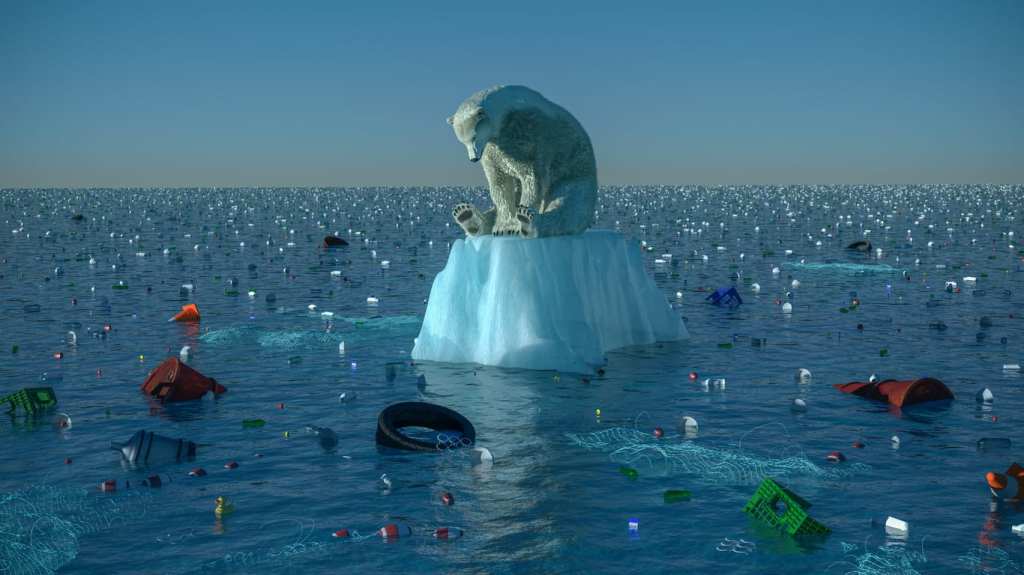Climate change. Global warming. Greenhouse gas. Carbon footprint. Terms we’ve been hearing for years to convince us that the world is changing right before our eyes, it is our fault that it is changing, and that we can actually do something about it. Despite the overwhelming evidence of our role in this all, there are many that deny the significance of this issue. So, let’s address a few of the more commonly held beliefs by climate change deniers and explain why climate change is, indeed, real, and how its impact will most definitely be felt by all of us.
1. “But…but this is the coldest winter ever. So much for global warming.”
To start this one off…let’s go here:
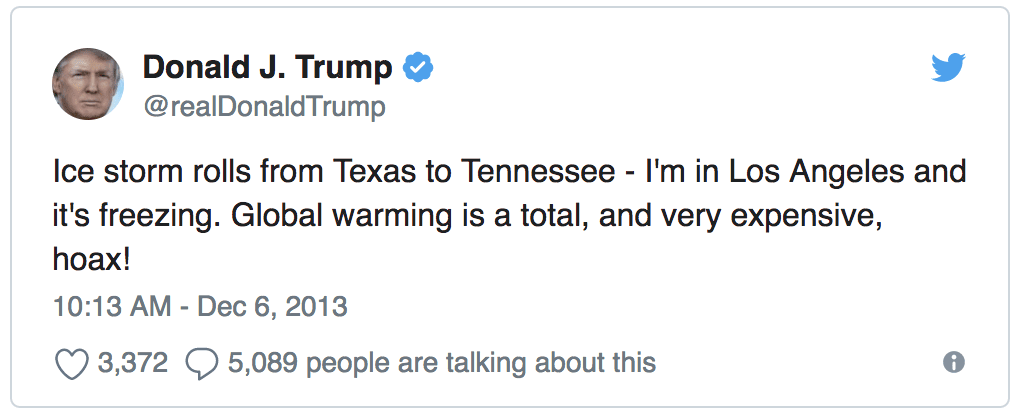
Photo Credit: Twitter
For starters, climate and weather are not the same thing. Weather refers to, well, right now. Climate is the pattern of weather established over the course of 20 plus years. It is quite possible to have a cold day and still be experiencing a significant warming trend. We know for a fact that the world is getting warmer – that’s the global warming part of the climate change we are currently experiencing. The more climate change is studied, the more we know that our warming temperatures are playing a significant role in our more extreme seasons, the decreasing number of annual record low temperatures, the warming of the oceans, etc.
Again…just because we have a cold day doesn’t mean the world isn’t getting warmer.

Photo Credit: Twitter
2. “Climate change is totally natural. It’s happened a bunch of times before.”
Yup. You’re 100% right. But previous historic increases in CO2 have led to serious environmental shifts and mass extinctions. We are emitting CO2 and other greenhouse gasses at a far higher rate than they have ever gone into the atmosphere at any other time in history. It’s like we’ve jumped out of a plane and deployed our parachute while flying over a raging inferno…and rather than wait for the slow decent into the flame where we will inevitably perish…we decide to cut loose and dive in face first at rapid speed.

Increased emissions=Increased CO2 Concentration=Major environmental impact
Photo Credits: Wikimedia 1, 2
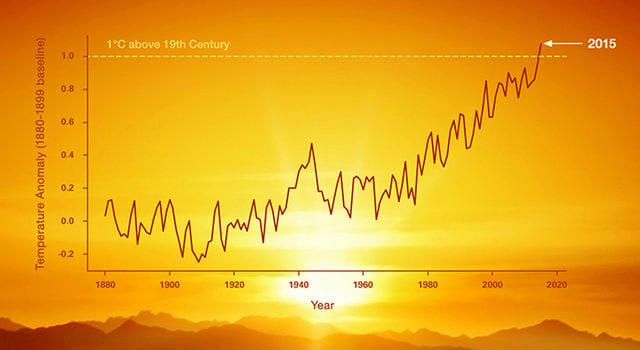
Global Temperature Anomaly Increase
Photo Credit: NASA
3. “Plants and animals have been figuring it out forever. They’ll adapt.”
Normally, maybe. But because human-caused climate change is happening so quickly, plants and animals do not have time to adapt. Significant climate change events, man-made or not, have led to mass extinctions throughout history. Scientists fear we are approaching a similar scenario again – indeed, right now record numbers of species are becoming endangered and going extinct.
Let’s take a look at frogs, for a second. Because of their permeable skin, unprotected eggs, and reliance on external temperatures to regulate their own, they are often among the first species to die off when ecosystems go haywire. Scientists frequently think of frogs and other amphibians as bellwethers for major climate and global trends. And frogs, sad to say, are dying off en masse.
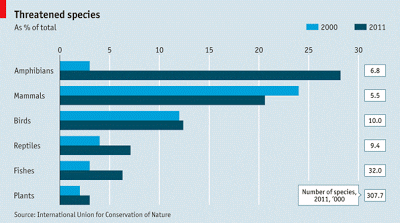
Photo Credit: ICUN
4. “If there’s climate change, then why is Antarctic ice increasing?”
It’s not. Ice in glaciers, in Greenland, in the Arctic, and in the Antarctic is all melting at an alarming rate, and many scientists argue we could be at a tipping point. The melting of land and sea ice is a catalyst for many other global changes: it leads to warming ocean waters, it diminishes the planet’s ability to reflect warming sunlight back into space (called albedo), and it disrupts traditional ocean currents. Once these things start to happen, they create a feedback loop – as ice melts and oceans warm, more ice melts, and so on and so on.
We are without a doubt approaching a very dangerous place, climactically speaking.
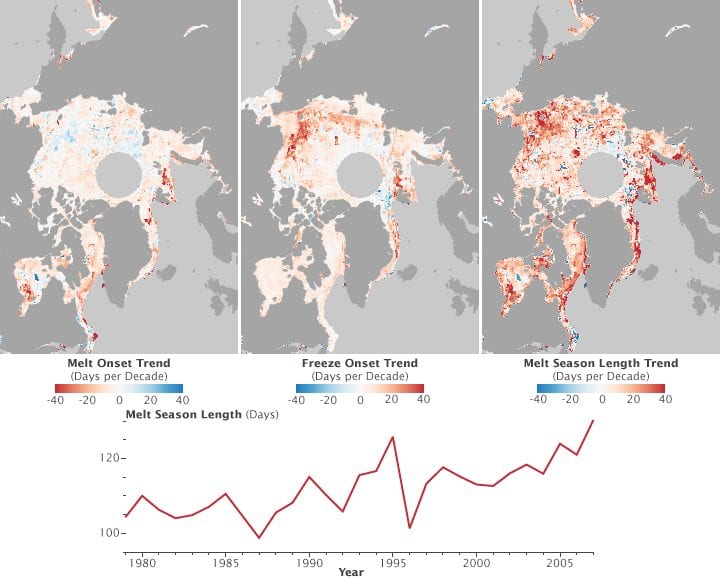
Scientists from NASA and the National Snow and Ice Data Center described another way Arctic sea ice is changing: the summer melt season is getting significantly longer.
Photo Credit: Wikimedia
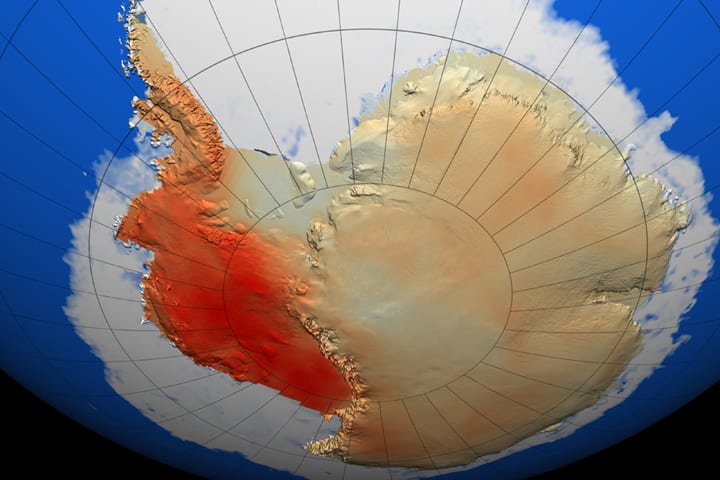

Increasing Temperatures in Antarctica.
Photo Credit: Wikimedia
Without exaggerating we can say that the elongating melting period, rising ocean temperatures, increasing pollution, and soaring CO2 emissions are literally killing our oceans. And if the oceans die…we die.
The changing climates at our poles don’t only create heartbreaking images of polar bears struggling for survival (though that is one negative impact). The changing climate will eventually make survival a struggle for humans, as well.
Here is a short video about Antarctic ice melt:
5. “Scientists don’t even agree that climate change is real.”
Except that they do. Scientific journals, studies, etc. consistently agree that global warming is caused by people – and they publish their research for all to see. Are there rogue scientists? Sure. As is always the case, “consensus” does NOT mean unanimous. But even though there are some people who argue that the Holocaust did not happen, do we not generally agree that it did?
Enough said.
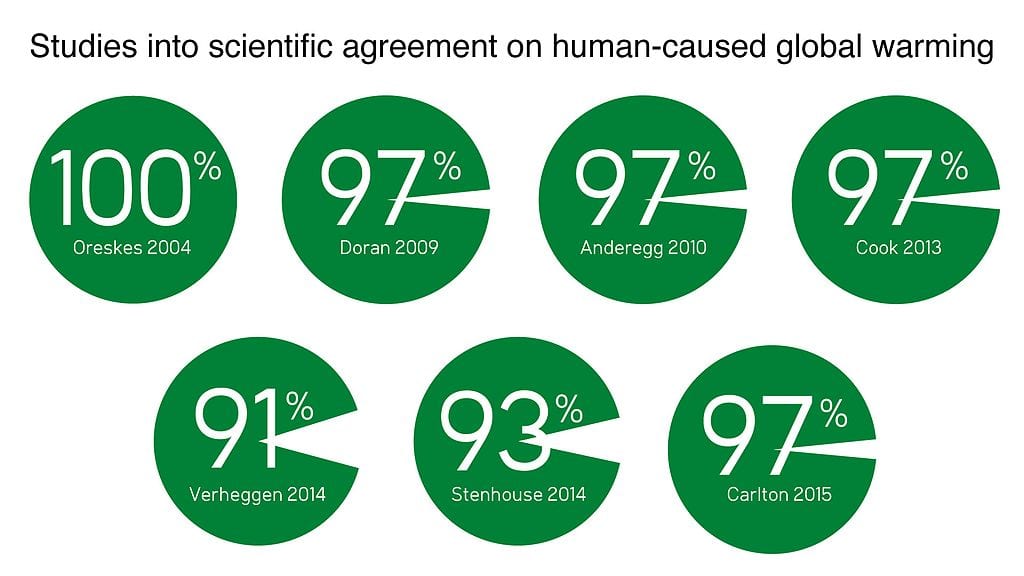
Photo Credit: Wikimedia
6. “Climate change is actually a good thing.”
This may be the worst one of all. There is not a single good thing (for the human race) that will come from global climate change. Will it be good for the planet in the long run? Well, maybe. Earth has proven itself to be quite resilient and every so many millennia just has to hit the restart button.
But the Earth is a planet. We are people. And for us, climate change means more frequent extreme weather events (particularly hurricanes), drastic sea level rises causing low-lying islands – and eventually the American coastline – to disappear, longer and more intense periods of drought, more devastating wildfires, and on and on. We’ve already been seeing these effects with increased frequency over the last 10 years, and it’s just going to get worse. Not to mention the billions, if not trillions, of dollars it will cost to manage it all.
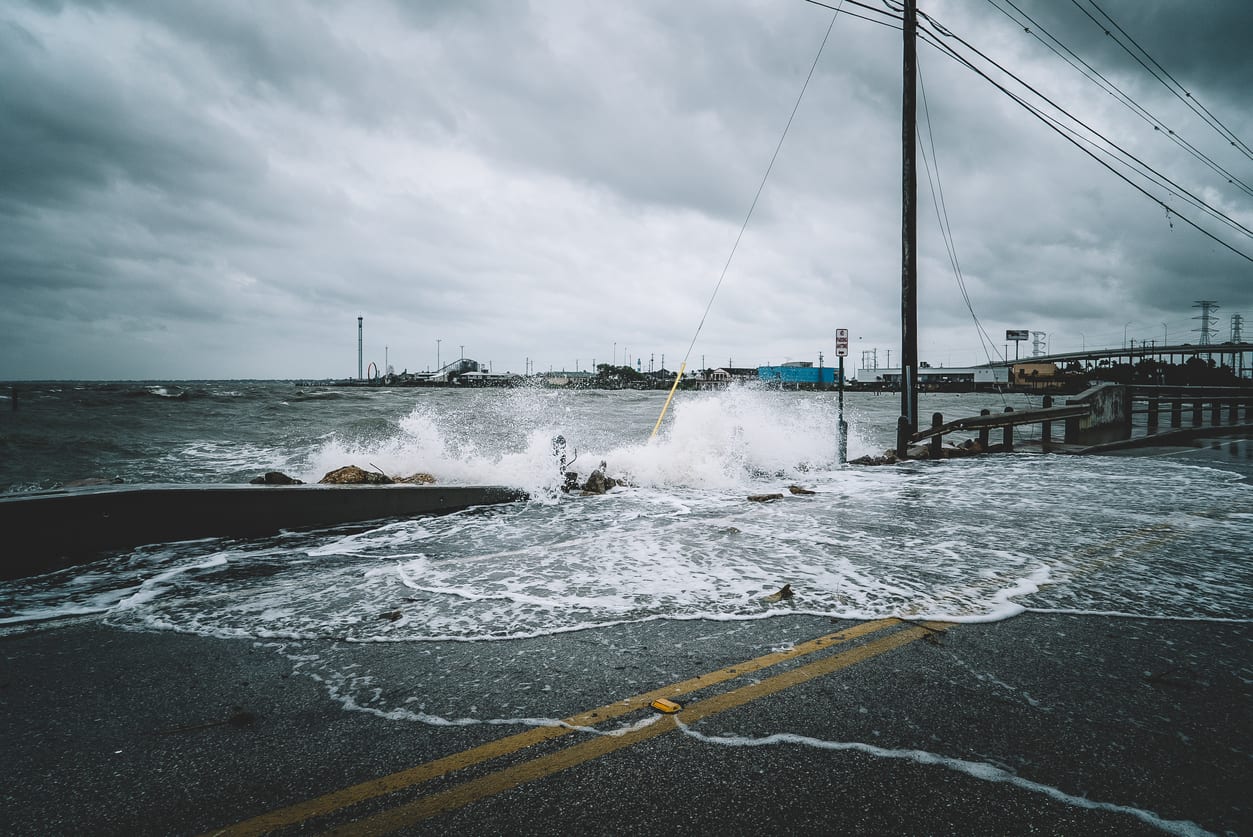
Photo Credit: iStock
In summation; YES, climate change is real. YES, people are causing it. YES, scientists agree. YES, there is proof. NO, it is not a good thing…at all…in any way.

Photo Credit: Wikimedia

